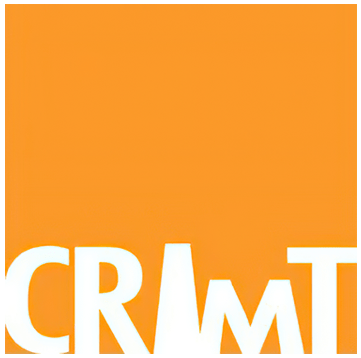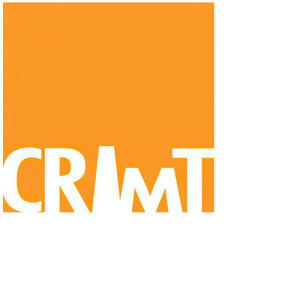Change, Actor Resilience and Experimentation for Better Work
Work is currently being turned upside down, with major changes affecting how people experience their work, participate in their communities and live their lives. Many institutions that fostered solidarity, equality and prosperity seem unable to respond to the needs and aspirations of workers and their communities. There is an aspiration for productive, innovative, healthy and inclusive work, in which individuals live free from excessive insecurity and threats to their health and well-being, expect to exercise some control and autonomy in their working lives, and achieve economic democracy and citizenship in a sustainable and solidaristic vision of prosperity for all citizens and future generations – what we label better work.
Better work speaks to the conditions of the work experience and to employment status and labour rights. Yet a different picture emerges from an era when disruptive technologies, climate crisis, pandemic health threats, the unbundling of the firm, the reconfiguration of global production networks, the changing role of the state, and transformations in identities and values often result in worse work and disjointed communities.
This disconnect creates uncertainty but also opens up space for actor resilience and experimentation. In different national, institutional and organizational contexts, world-of-work actors, old and new, are experimenting in response to these fault lines of change. Echoing the developmental structure of the project, the cases of experimentation in the regulation of work and employment are identified by fault lines of change and regulatory arenas.
The project identifies seven such fault lines of change

![]() Disruptive technologies
Disruptive technologies
![]() Climate crisis and transition
Climate crisis and transition
![]() Pandemic health threats
Pandemic health threats
![]() The unbundling of the firm
The unbundling of the firm
![]() The reconfiguration of global production networks and supply chains
The reconfiguration of global production networks and supply chains
![]() The redefinitions of the role of the state
The redefinitions of the role of the state
![]() The transformations in identity, solidarity and values
The transformations in identity, solidarity and values
For a presentation of each fault line and of our approach to experimentation in the re-regulation of work and employment, see: Ferreras I, MacDonald I, Murray G, Pulignano V. Introduction: institutional experimentation for better (or worse) work. Transfer: European Review of Labour and Research. 2020; 26(2):113-118. doi: 10.1177/1024258920926444 [Institutional access required] and Murray G, Lévesque C, Morgan G, Roby N. Disruption and re-regulation in work and employment: from organisational to institutional experimentation. Transfer: European Review of Labour and Research. 2020; 26(2):135-156. doi: 10.1177/1024258920919346 [in open access].
The five often overlapping arenas for the regulation of work and employment include

![]() Firm policies and practices
Firm policies and practices
 Markets
Markets
 State policies and practices
State policies and practices
 Collective representation
Collective representation
 Regional and policies and practices
Regional and policies and practices
An international partnership funded by the SSHRC
The CRIMT International Partnership on Institutional Experimentation for Better Work focuses on these processes: the disruption of traditional forms of regulation of work; how actors are engaged in experimentation about the governance of work; their claims on public policy; how these processes lead to better and worse work; and how particular capabilities and resources contribute to new forms of regulation and better work. These experiments are likely to shape our economies and communities of the future.
The CRIMT Partnership Project is funded by the Partnership Grant program of the SSHRC (Social Sciences and Humanities Research Council of Canada), which support formal partnerships between academic researchers and other partners to advance knowledge and understanding on critical issues of intellectual, social, economic and cultural significance, such as better work, and to innovate, build institutional capacity and mobilize research knowledge in accessible ways. This funding entails significant counterpart funding from project partners of which the federation of twenty Partner Centres involved in this project.
Key challenges for researchers
A key challenge is to aggregate understanding and engage in shared learning in the study of work, which requires our own experimentation with innovative social science. This international and interdisciplinary partnership has to date engaged in an extensive range of activities to document, interrogate and compare more than 100 cases of experimentation. The objective is to identify: sources of resiliency; constraining and facilitating conditions; strategies; the role of resources, deliberation, reflexivity and collective capabilities; the links between organizational and institutional experimentation as regards scalability and sustainability; and lessons to be drawn for creating better work.
A collaboration of 20 Partner Centres and 180 researchers
The CRIMT Institutional Experimentation for Better Work research agenda federates twenty leading Partner Centres and 180 researchers in more than a dozen countries in ongoing deliberation on the theoretical and practical challenges of experimentation in the regulation of work and employment. The aim is to stimulate a wide range of actors to take up the lens of experimentation in the way that they strategize, innovate and embrace uncertainty in their practical search for enduring solutions for better work.
A key challenge for the research community, as suggested by experimentalism and this new model of social science aggregation, is to nurture the democratic nature of society by helping actors to reflect critically and constructively upon their own actions and empowering them to solve problems in the world of work


